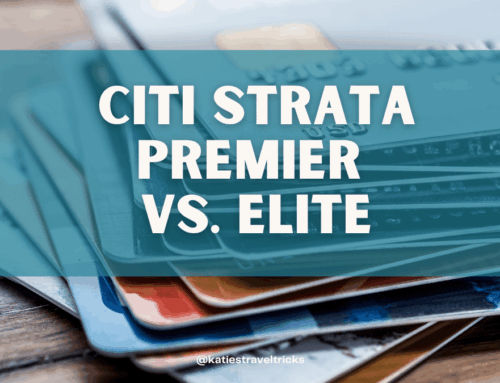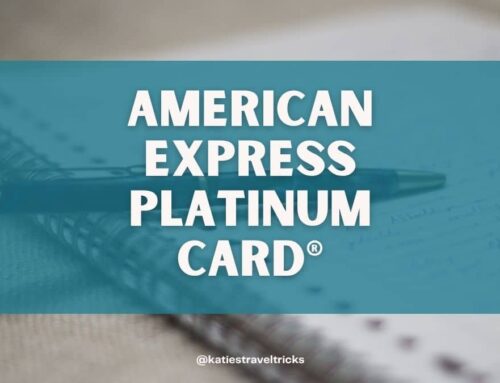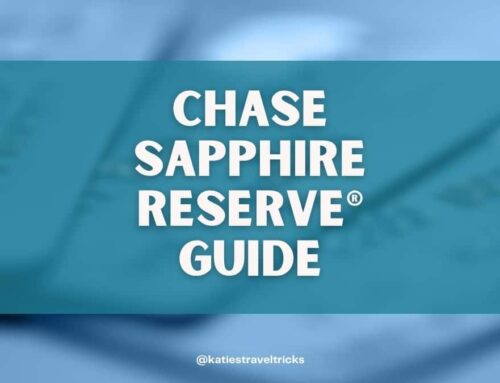All content was accurate at the time of publication. Check issuer’s site for most up to date information.
Katiestraveltricks.com has partnered with CardRatings for our coverage of credit card products. Katiestraveltricks.com and CardRatings may receive a commission from our partners. American Express is a Katiestraveltricks.com advertiser. This compensation may impact how and where links appear on this site. This site does not include all financial companies or all available financial offers. Terms apply to American Express benefits and offers. Enrollment may be required for select American Express benefits and offers. Visit americanexpress.com to learn more. For Capital One products listed on this page, some of the above benefits are provided by Visa® or Mastercard® and may vary by product. See the respective Guide to Benefits for details, as terms and exclusions apply.
Are Credit Card Annual Fees Worth It?
If you’ve never paid an annual fee on a credit card, you may be skeptical of whether it’s really worth it. Your no-fee card may earn you points and have some benefits, like car rental insurance and fraud detection. Why would you need to pay $90+ for a credit card – or, if you’re like us, a stack of cards?
We think annual fees can be worth it, so let’s break down when and why it might be worth paying an annual fee on a card.
First Year
Most travel cards with annual fees are definitely worth the annual fee the first year, if you are eligible for the card’s welcome bonus. Some cards even waive the annual fee the first year!
This doesn’t mean you should open every card, or that you need to keep every card you open. Make sure you understand how opening cards can impact your credit score and your 5/24 status.
Follow our Three Year Plan to keep the decision making to a minimum while ensuring you can earn plenty of points!
All of the cards in our Three Year Plan have welcome offers with a value at least double — but often triple or more — what you’ll pay in the first year annual fee.
The first year, to evaluate if a card is worth the annual fee, I suggest you estimate the value of the welcome offer and weigh that against the annual fee.
After the First Year
Wait until you have had your card for a full year before doing anything. This helps you stay in the good graces of credit card companies and ensure they don’t claw back your points. After a year, assess the ongoing value you anticipate getting from your card and decide whether you want to keep the card.
If you’ve decided that you don’t want to keep paying the annual fee on your card, and you aren’t satisfied with your retention offer, you have two options:
- Downgrade the card
- Cancel the card
Option 1: Downgrade the card
Most credit card families have several cards with varying annual fees. Depending on your card, there’s a good chance that you’ll be able to get the bank to downgrade your card to a lower fee or no-fee card.
Downgrading your card means you will lose the benefits that came with it, but you’ll keep your card history alive and, for flexible rewards cards, you’ll usually be able to keep your reward points.
Note that you may not be eligible for any welcome bonuses on the card you downgrade to. For us, this isn’t a big deal since the welcome bonuses on no-fee cards aren’t nearly as generous.
Keeping cards active – by either keeping or downgrading them – is an important part of keeping your credit score high. Closing credit cards could impact your length of credit history and your credit utilization, both of which could have a negative impact on your credit score.
If you have a flexible rewards card, you’re probably earning Citi Premier ThankYou points, Chase Ultimate Rewards, Amex Rewards, or Capital One Venture Rewards. If you close that credit card (for example a Capital One Venture Rewards card) and you don’t have another eligible card (like a Capital One VentureOne Rewards card), any points that you have remaining in your account will be lost. If you downgrade your card to an eligible no-fee card, where available, you’ll be able to keep your rewards.
Note that if you downgrade a flexible rewards card, you may be able to keep the points, but the ways you can use the points may be more limited. For example, if you downgrade a Chase Sapphire Preferred® to a Chase Freedom, you will no longer be able to transfer your Ultimate Rewards to transfer partners and your points will be less valuable when booking through the travel portal.
Option 2: Cancel the card
There are a lot of reasons you may just want to cancel the card. If you have decided you don’t want to keep or downgrade the card, make sure your points are secure and go ahead and call or message the bank to cancel.
If it is airline or hotel card, your points have already been transferred to that hotel or airline loyalty account so cancelling your card will not affect your points. If it is a card that earns bank points, you will need to use or transfer your points before you cancel.
When to Keep a Card with an Annual Fee
Ultimately the decision on whether to keep a card long term (or beyond the first year) comes down to whether or not the benefits outweigh the fee for you.
This varies from person to person. If you are paying for a card but not using the card or taking advantage of its benefits, it’s probably not worth having.
If you travel, there’s a good chance that there’s a card (or a few) out there with an annual fee that will pay for itself and that will be worth not just opening, but keeping year after year.
Many cards come with benefits like trip delay and trip interruption insurance, lost baggage reimbursement, primary car rental insurance, extended warranty protection, and cell phone protection. If you find value in these insurances and protections, that alone may be worth an annual fee.
In addition, other cards come with statement credits and yearly bonuses or freebies that equal more than the annual fee of the card.
Check out Katie’s YouTube video and keep reading to learn about some of our favorite credit cards with annual fees that we think pay for themselves!
Examples of Cards Worth Keeping
Capital One Venture X Rewards Credit Card
You can read all about the Capital One Venture X card here. The Venture X is a flexible rewards card, meaning that you will earn miles that can be redeemed in a few ways.
You typically get the best value for your miles by transferring them to a Capital One transfer partner, but you can keep it simple by using your miles to book travel through Capital One Travel or using your points to get a statement credit for travel purchases.
This is our family’s “everyday spend” card – if we aren’t trying to meet a credit card minimum spend or get bonus points on another card, we use our Venture X. The $395 dollar fee seems steep at first glance, but you can see that you are getting more than $395 worth of value from this card. And that’s before accounting for other perks, detailed here.
| Benefit | Estimated Value |
| Annual Travel Credit | $300/year |
| 10k points each account anniversary | $100/year |
| Global Entry/TSA PreCheck statement credit | Up to $100 every 4 years |
| Lounge Access for your whole family | Priceless |
Southwest Rapid Rewards® Priority Card
Southwest is a great airline for families – offering free checked bags, family boarding, snacks on board, flexible change policies, and great customer service. Read more about this card here.
We love that Southwest card bonuses can make a Companion Pass (for up to two years!) achievable. Read all about how to use bonuses to earn a Companion Pass here.
If earning a Companion Pass isn’t enough of a reason to splurge on paying an annual fee for a Southwest card, the $149 fee on the Priority Card pays for itself.
| Benefit | Estimated Value |
| Southwest travel credit | $75/year |
| 7.5k points each account anniversary | $97.50/year |
| 4 Upgraded Boardings | $120/year |
Chase Sapphire Preferred® Card
The Chase Sapphire Preferred® Card is our favorite cards to start with. But it’s also a great card to keep long term.
The points can be redeemed through the Chase TravelSM but our favorite use is transferring them to Hyatt. You can book stays in Hawaii, all-inclusive resorts, and more.
It also comes with great travel protections. Read our full guide here.
| Benefit | Estimated Annual Value |
| $50 Credit for hotels booked through Chase TravelSM | $50 |
| $10 Monthly Doordash Credits | $120 |
Hotel cards with annual free night certificates
You can read about the three IHG (Intercontinental Hotel Group) cards and all their benefits here. With an annual fee of $99, the benefits can far surpass the fee.
The annual anniversary night is worth a minimum of $200.
| Benefit | Estimated Value |
| Reward night (up to 40k points) each account anniversary | $200+ |
| Global Entry/TSA PreCheck statement credit | Up to $100 every 4 years |
| United Airlines TravelBank Cash | $50/year |
Responses are not provided or commissioned by the bank advertiser. Responses have not been reviewed, approved or otherwise endorsed by the bank advertiser. It is not the bank advertiser’s responsibility to ensure all posts and/or questions are answered.






